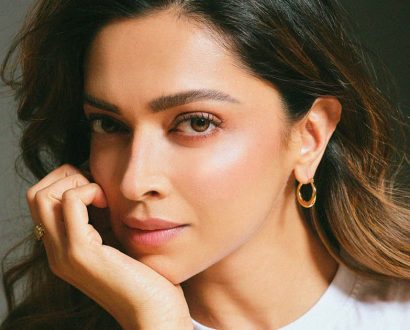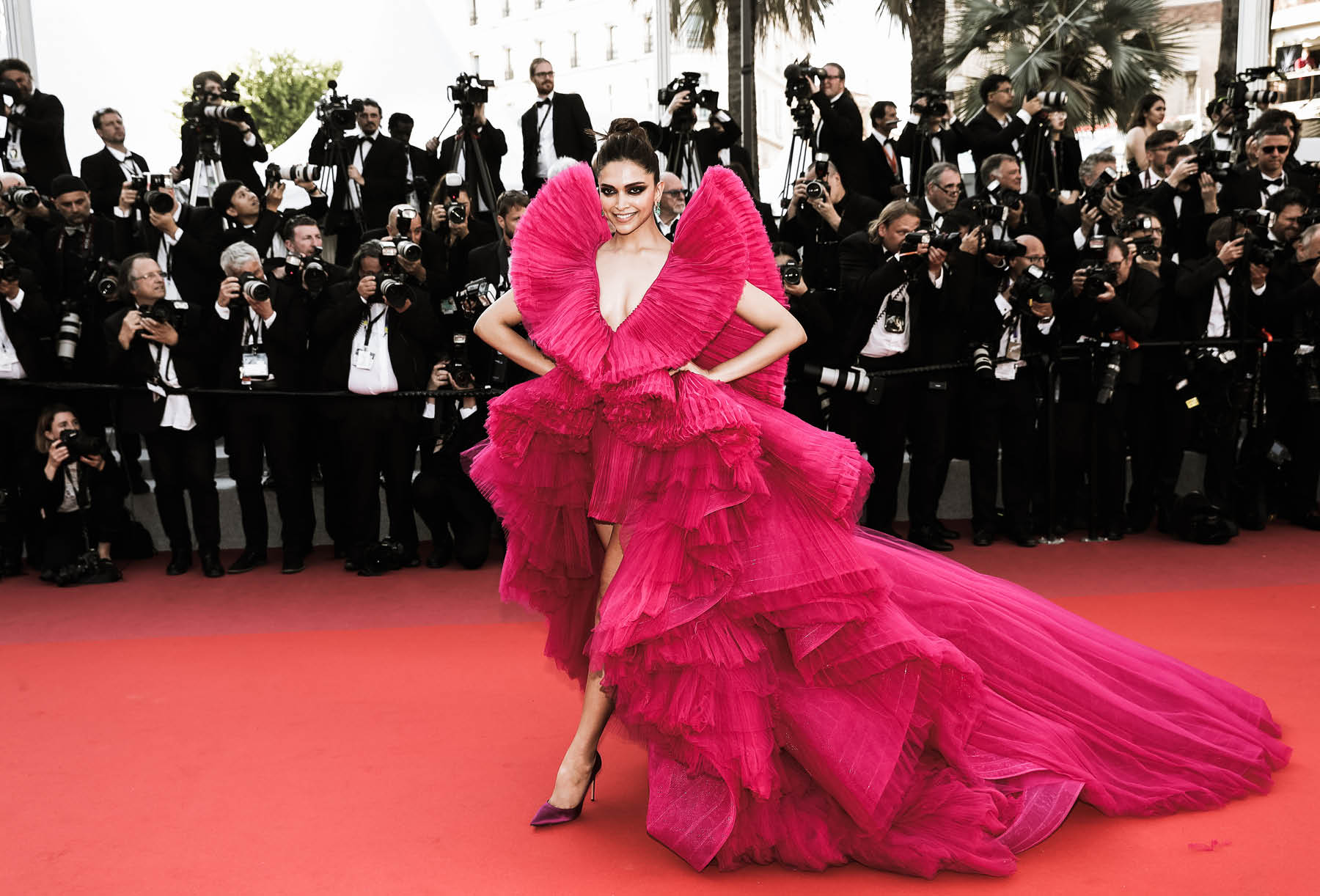How Deepika Padukone’s global self-care brand is breaking down barriers

Back in February 2014, Deepika Padukone remembers waking up – and promptly collapsing.
The actress, who had burst onto the silver screen in 2007’s Om Shanti Om opposite Shah Rukh Khan, was already the darling of the Indian film industry. Hits such as 2012’s Cocktail and 2013’s Chennai Express only further cemented that status.
"I was at the top of my career, doing everything I loved," Padukone tells The CEO Magazine.
She knew ‘burning the midnight oil’, as she describes it, came with the territory and understood that there were times she was sure to feel tired. Normally she would pass it off as exhaustion or dehydration; however, that morning felt different. The strange, unfamiliar feeling didn’t go away.
"I went for a whole bunch of scans, but over the next couple of weeks, I realized I wasn’t feeling any better," she continues. "There was this weird feeling in my stomach. I would just keep crying and breaking down at the drop of a hat. I just didn’t feel like myself."
When her parents visited a few weeks later, Padukone’s concerned mother suggested she see a therapist. On her advice, she did. The therapist immediately identified what she was experiencing as anxiety and depression.
"There began my journey of medication, treatment and therapy," she says.
A light bulb moment
At first, what was happening was kept very quiet, with her visits hidden from the prying lenses of paparazzi cameras.
"We didn’t want it to be seen that I was going to the therapist," she says. "We were so covert and didn’t tell anyone about how I was feeling."

"Not everyone has been gifted with the power to influence."
Months later, once she was on the mend, Padukone started to question why she had handled her treatment with such secrecy.
"I wondered why we had hushed everything up and why there was so much stigma around mental health," she says.
It was a light bulb moment that would have an enormous impact.
"I decided that I wanted to go public and share my journey and my experience with the world," she recalls.
An interview was booked on national television, where she spoke publicly about her story for the first time. It was also the first time a public figure had appeared on national television and revealed their vulnerability to the nation.
The interview went viral.
"Even today, people refer to it when they want to communicate to their peers or to their parents about what they are experiencing," she says.
Padukone had intended to do one interview with the aim that it would trigger a bigger conversation. But it didn’t end there.
"I realized that the floodgates had opened and there was just so much more to be done," she says.
The reaction her interview generated also demonstrated another truth: "Not everyone has been gifted with the power to influence," she notes.
But Padukone had, and she was determined to act on it.
Impact at scale
A year later, Padukone founded The Live Laugh Love Foundation (LLL), a nonprofit that aims to create awareness of mental health, reduce the stigma associated with mental illness and increase access to credible resources while focusing on affordability of mental healthcare in India.
This year, the Foundation is celebrating its 10-year anniversary and has since been headed up by her sister, and former member of the World Economic Forum’s Global Future Council for Mental Health, Anisha Padukone, as CEO.
Deepika Padukone visiting the home of a LLL program beneficiary in Thiruvallur district in Tamil Nadu, India. Photo: The Live Love Laugh Foundation
One of LLL’s first drivers of impact was its Doctor’s Program, which sought to expand the base of professionals who could manage mental illness by training primary care physicians to be able to diagnose, treat and recommend further care (India has approximately 25,000 mental health professionals – a tiny number, considering the country is home to a population of 1.45 billion).
"The doctor’s program was to sensitize general practitioners since they really are the first line of defense," she says.
While that was running, the Foundation was also going into schools with its You Are Not Alone program for adolescents. Ongoing programs include the Community Mental Health Program to bring greater mental healthcare access and resources to rural India, as well as a corporate program to address mental health in the workplace.
"I like to think of us as facilitators who actually help ends meet, tie the pieces together and bring scale to some of the programs thanks to the reach we have."
Padukone knew early in the journey that it was not about trying to reinvent the wheel with LLL. Partnering with people already established in the space has been crucial to achieving the desired impact.
"I like to think of us as facilitators who actually help ends meet, tie the pieces together and bring scale to some of the programs thanks to the reach we have," she says.
Taking India to the world
Padukone’s personal mental health journey didn’t just inspire her to impact others, however. It also showed her how crucial it was to prioritize self-care.
"That’s when I learnt to put myself first, to create boundaries and that it was OK to say no to something," she says.
When, a few years ago, she found herself starting to question what came next in such an illustrious career, and what she wanted her legacy to look like, she knew whatever form it took, it would be anchored in not only her Indian roots, but also taking care of one’s self.
The result was the launch of her own company, self-care brand 82°E, in 2022.
"The idea was to create a brand that was an extension of my core beliefs and also something that really stands for taking India to the world," she explains. "I’ve always been extremely proud of my culture and my heritage and that’s something I’ve owned right from the beginning."
Named for the longitude that cuts across the heart of India, Padukone says the choice of name was easy.
"That’s exactly what I want to do with the brand," she explains.
"For me, when you take the longitude, it’s a beautiful summary of that legacy I want to leave behind," she says.
"I’ve always been extremely proud of my culture and my heritage and that’s something I’ve owned right from the beginning."
What Padukone also knew was that she wanted to do it herself – even if it heralded the biggest risk she’s taken as an entrepreneur.
"The easiest thing that I could have done was to partner with somebody else – and there were a lot of offers," she explains.
So strong is her faith in the brand and its positioning as a global luxury marque focusing on self-care that she’s invested her own money.
"It’s slowly but surely paying off," she acknowledges.
While the brand has been founded on skincare, she’s not ruling out a foray into other categories as well. The product, she says, comes secondary to the primary aim of creating something that reflects her core beliefs.
Another business play she’s already made is a foray into venture capital. The startups her investment entity Ka Enterprises has backed so far range from online pet shop platform Supertails to app-based ride hailing service BluSmart, yet they are all linked by a common thread of being made-in-India businesses looking outwardly to the globe.
Padukone says that, while she’s been open to meeting everyone who has come knocking on her door, the companies she is investing in are those that she feels a connection with and those with an interesting story to tell.
It’s a new chapter in her career, but she’s reveling in having found a community of like-minded entrepreneurs.
"I’m finding it so exciting to back someone’s vision because you feel like they’re being authentic in what they want to tell and do," she says.
Surrounding her is a team who examine each new opportunity as well as trusted business advisors. But she makes every decision.
"The final gut call of which companies we want to invest in and at what point we want to exit always lies with me," she says.
Being true in the moment
Born in Copenhagen, Denmark, Padukone’s family returned to India when she was 11 months old. Her father, Prakash Padukone, is a former World Number 1 badminton player and Padukone herself played badminton at a competitive level from a young age. Anisha, her sister, is a former professional golfer.
Her father, she says, will always try to grab 10 minutes of alone time with her to share some ‘words of wisdom’. It’s the advice he gave her during her early days in sport that still rings true as she moves forward in her entrepreneurial journey.
"Discipline, dedication, determination and patience," she says. "Especially in the fast-paced world that we live in now, people seem to want instant gratification, and everything has to happen now.
"Whether that’s in business or in any other sphere of our lives, I feel that’s one virtue that we don’t give enough importance to."
"When you’re acting, there’s only so much you can prepare. You have to leave a little bit of it just to listen to that inner voice. That also applies to the entrepreneurship side, too."
There’s also the influence her acting career has had on her approach to entrepreneurship and advocacy – spontaneity.
"When you’re acting, there’s only so much you can prepare. You have to leave a little bit of it just to listen to that inner voice. That also applies to the entrepreneurship side, too," she adds.
Actor, entrepreneur, mental health advocate – and, as of five months ago, mother.
"These are all different roles that I’m playing every day and they all demand different things from me," she says.
Amid all of this, authenticity is her common thread.
"Whether it’s choosing a script or a company that I want to invest in, or in 82°E itself, it’s about ensuring that I am being true in that moment," she reflects.
Padukone has firmly proved that she’s as at home in the boardroom as on the film set, but her legions of fans around the world need not fear that she'll disappear from the big screen anytime soon.
"The movies will always happen because they are what makes all this possible, so I’ll continue to nurture that," she says. "That’s what empowers me to do all of the other work that I do. I’ve been very lucky like that, to be able to balance it all."
Three quickfire questions
What’s a startup trend that you’re excited about?
Technology in the mental health space. Although, with mental health, you still need some physical intervention and it needs to be personal, I think at some level you can afford to have tech intervention. I feel like that’s pretty interesting.
What is your go-to ritual?
Sleep. It’s such an underrated tool.
What is your one piece of advice for aspiring entrepreneurs?
If I had to summarize it in two words: authenticity and patience.